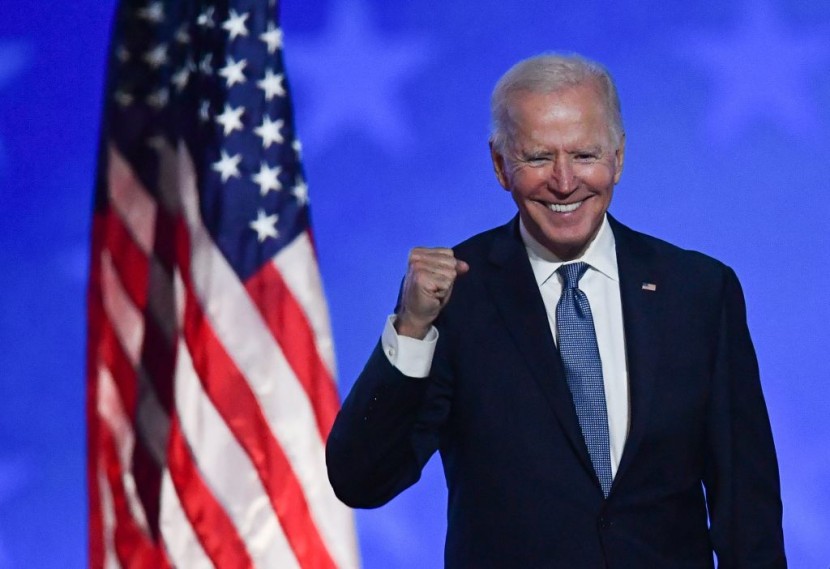
President Joe Biden's legislative wins have directed to position the US to win the economic competition of the twenty-first century, but his investments to boost the nation's technology, infrastructure, and climate resilience over the next decade are set against a 90-day clock until the midterm elections.
From turbocharging the US computer chip business to transitioning the country to a greener economy, Biden's accomplishments will take years to materialize, reflecting the breadth of his objectives, which, when combined, place Biden among the most legislatively active presidents in recent memory.
Biden Signs CHIPS Act in Bid to Boost US Over China
Democrats are also betting that the quick pace of recent victories will persuade an electorate dissatisfied with the economy and the country's overall direction to vote in their favor. They believe it's especially important to show people what Democrats can achieve when they control the levers of power in Washington, even if energy costs don't fall immediately or a new bridge takes years to build.
The White House sees the legislative successes as interlocking parts of the puzzle that Biden put out when he campaigned for president in 2020, promising to help the US compete with a growing China. The policy ideas centered on tackling generational dangers and providing long-term possibilities, especially in light of what Biden saw as disturbing losses under the Trump administration.
Biden, a 50-year Washington veteran and former senator and vice president, also intended to avoid ruling by executive order, a presidential crutch for both parties when parliamentary instability is severe. Executive orders can be amended or revoked by a president's successors, and they are frequently limited in how much they can accomplish without the approval of Congress. According to White House officials, Biden's goal was not merely to change the country's track, but to maintain it on that trajectory, which required legislation rather than emergency declarations, AP News reported.
The Biden administration has previously stated that the measure, now known as the CHIPS and Science Act, is crucial to national security, competing with China, and lessening the United States' reliance on Taiwan and South Korea for critical technology.
The United States Department of Commerce has yet to develop rules for judging grant applications, and it is uncertain when projects will be funded.
Read Also : Biden Administration Ends Trump-Era 'Remain in Mexico' Policy Requiring Migrants To Wait for Asylum Hearings
US Companies Announce Billions in Investments
According to the White House, the signing was attended by the CEOs of Micron, Intel, Lockheed Martin, HP, and Advanced Micro Devices, as well as cabinet officials and auto industry and union leaders, including United Auto Workers President Ray Curry.
US semiconductor firms have begun to announce multibillion-dollar investments. Qualcomm has committed to spending $7.4 billion on acquisitions between now and 2028, after committing to purchase an additional $4.2 billion in semiconductor chips from GlobalFoundries' New York manufacturing site on Monday.
White House, Micron's announcement of a $40 billion investment in memory chip manufacturing will boost the US market share from 2% to 10%. Micron announced on Tuesday that its investments will create up to 40,000 jobs in manufacturing and construction and that it expects to receive cash from the semiconductor law.
Continuous chip shortage has influenced everything from automobiles to firearms, washing machines, and video games. Thousands of vehicles and trucks are stranded in southeast Michigan as the chip shortage continues to disrupt automakers, as per Aljazeera.
The administration has also consistently framed this law as a crucial component in combating the impact of a growing China and ensuring the United States maintains a competitive edge over Beijing, notably in semiconductor production. Multiple briefings for senators have been held by administration officials to flesh out the national security implications of this measure, and Biden mentioned during his speech Tuesday that the Chinese government had campaigned against the legislation.
Biden has booked numerous public appearances since recuperating from COVID-19, including a visit to flood-ravaged Kentucky on Monday and another signing event on Wednesday for legislation for veterans who have suffered from toxic burn pits. However, Biden looked to be suffering from some lingering effects, coughing loudly numerous times throughout his speech and apologized for it at one point, according to Fox5 Atlanta.
Related Article : Joe Biden Unveils $1 Billion Weapons, Ammunition Package for Ukraine in War vs. Russia








